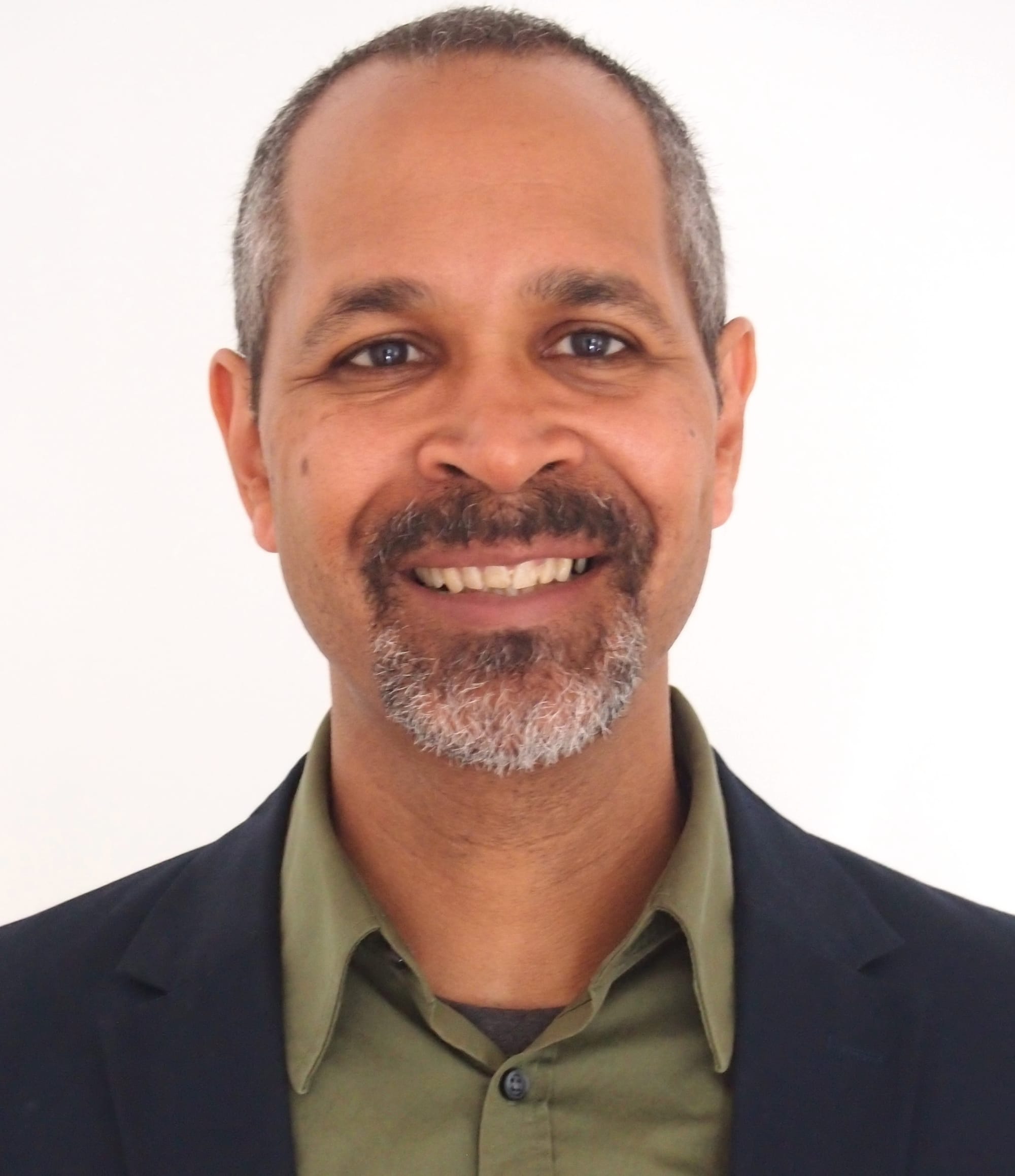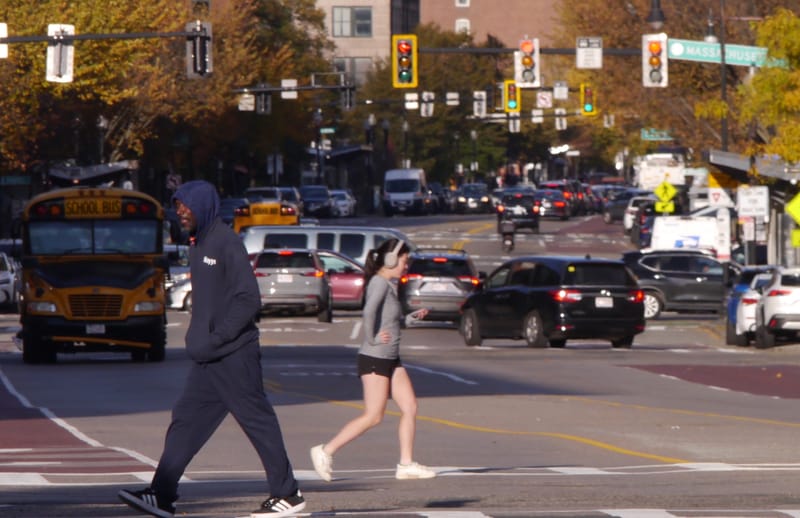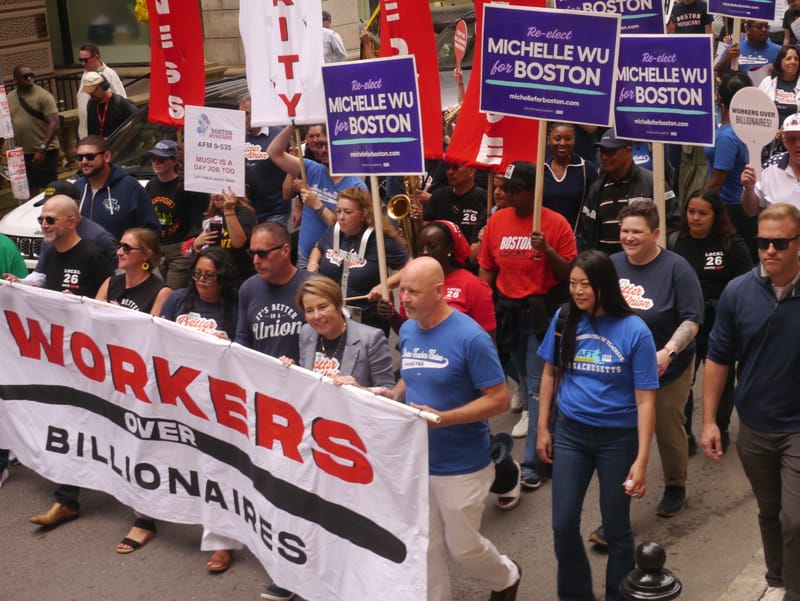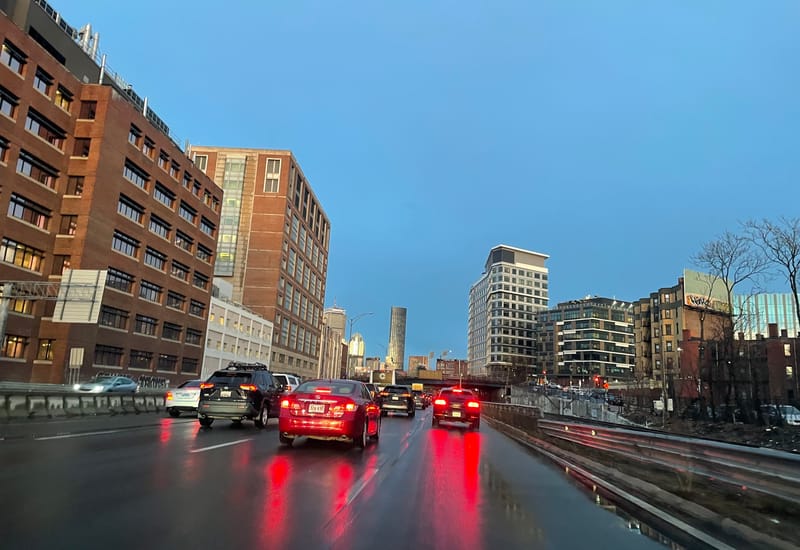City awards flagger contract to ex-commissioner
A multimillion dollar contract for civilian details on construction projects appears to have been written so that only one firm could win the bidding process, activists say.
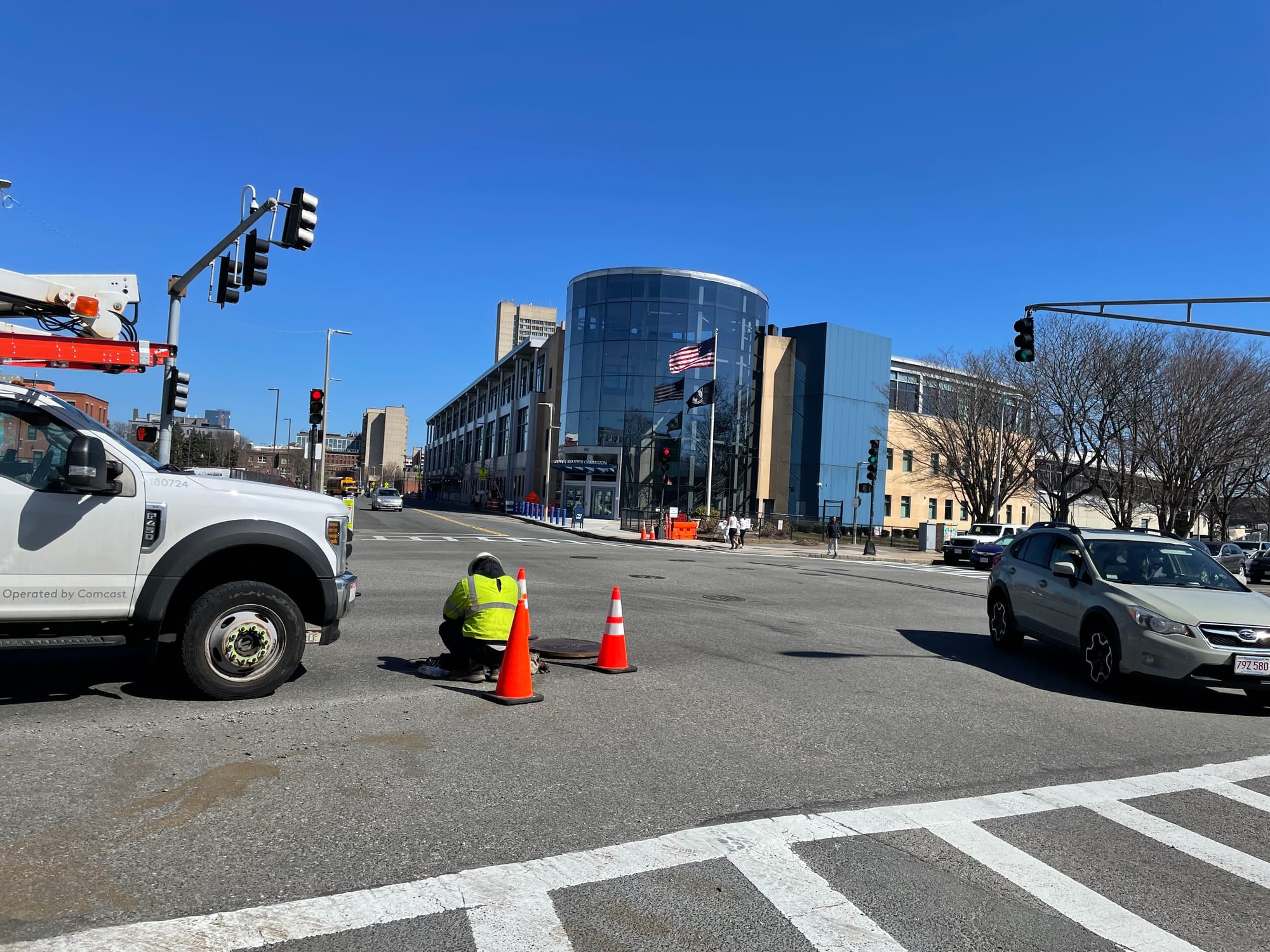
It was a years-long effort to persuade city officials and police unions to allow civilians to take on the paid construction details that have long been the exclusive domain of police officers. When the administration of Mayor Michelle Wu in 2023 inked a contract with the patrolmen’s union that allowed for civilians to work details, many activists were encouraged.
But now that the city has awarded the contract to a firm to manage civilian flaggers, as those who work details are referred to, some say the process was rigged. The Edward Davis Company, led by the former Boston Police Department commissioner, was announced as the successful bidder on the contract Friday.
Larry Ellison, former head of the Massachusetts Association of Minority Law Enforcement Officers, said the language in the city’s 2023 contract with the Boston Police Patrolmen’s Association (BPPA) all but assured Davis would get the contract, containing stipulations that the firm managing civilian flaggers be “a Massachusetts organization with law enforcement experience that has knowledge of how the paid detail system operates in the City of Boston,” and that the entity has “a minimum of three years experience providing staffing for outside traffic control.”
The Edward Davis Company, which has a contract to manage civilian flaggers at Logan Airport for MassPort, is the only firm in the state that has such experience.
“When you put in language like that, you’ve pretty much written it for Ed Davis,” Ellison said. “It was written to exclude everyone but Ed Davis.”
While there are two security companies owned by Black ex-police officers, both of whom have had experience working with the police detail system, neither firm has managed civilian contractors.
“This was Michelle Wu doing a favor for a friend,” Ellison said.
Davis advised Wu during the search for a new Boston police commissioner, which resulted in the hiring of current Commissioner Michael Cox.
During Davis’ tenure as BPD commissioner, from 2006 to 2013, MAMLEO issued a vote of no confidence, citing what members said were policies that undercut the recruitment and promotion of officers of color in the department.
The Mayor’s Press Office did not respond directly to questions from a reporter on the awarding of the contract to Davis, instead issuing a statement.
“Reforming the detail system is a historic step taken by the City to ensure better coverage of details and create more job opportunities for residents across Boston’s neighborhoods,” the statement reads. “The City is grateful to our Boston Police officers for their hard work and commitment to our residents and look forward to continuing our work to make Boston the safest major city in the country.”
Typically, when city or state officials seek to make a large contract available to small minority-owned firms, the work is broken down into pieces. Yet the city’s RFP for flaggers extends exacting requirements to any potential subcontractors — a move that would exclude any firm not run by an ex-police officer from winning a bid.
“If partnering with subcontractors for aspects of the work, all organizations have at least 3 years experience with paid detail system in Massachusetts,” the RFP reads.
Under city law, construction firms must hire police details any time construction work takes place on a street or when it in any way blocks traffic. The construction and utility firms that perform such work pay for the detail.
The city’s decision to allow civilians to work paid details comes after years of advocacy from criminal justice reform activists. Although the details pay more than $40 and hour, they have until now remained exclusively under the control of the Boston Police Department, despite the fact that there are often not enough officers to fill all the needed details. In 2023, 52,462 details went unfilled — 43% of the total number requested by construction firms, according to the city’s records.
In the city’s 2023 contract with the BPPA, Boston police officers have priority in the assignment of construction details. Any details that go unfilled by BPD officers are made available to a hierarchy of other workers, including university police officers and retired BPD officers. Civilians with no law enforcement experience have the lowest priority.
Activists who pushed the city to open details up to civilians say the city’s request for proposals for the project unfairly eliminated competition from anyone not in law enforcement beginning with the stipulation that firms competing for the contract be entity be “a Massachusetts business organization with law enforcement experience that has knowledge of how the paid detail system operates in the City of Boston.”
“These qualifications — in-depth knowledge of the paid detail system — they’re going to exclude everyone but police officers,” said Fatema Ahmed of the Muslim Justice League. “How is this actually opening the jobs up to civilians?”
Paul Joseph, a retired police officer who administered paid details while working for the department questioned why the city’s RFP called for law enforcement experience.
“This is a clerk’s job,” Joseph said. “It’s not rocket science. You don’t have to be the head of a large corporation to manage this.”
The city’s RFP requires the selected firm to be prepared to train up to 600 people.
Ahmad noted that most other states in the US do not require a law enforcement background for flaggers to direct traffic around construction projects.
“We’re making it unnecessarily complicated, compared to the rest of the country,” she said. “These are really well-paying jobs that should go to folks who need them.”
Flipside News


